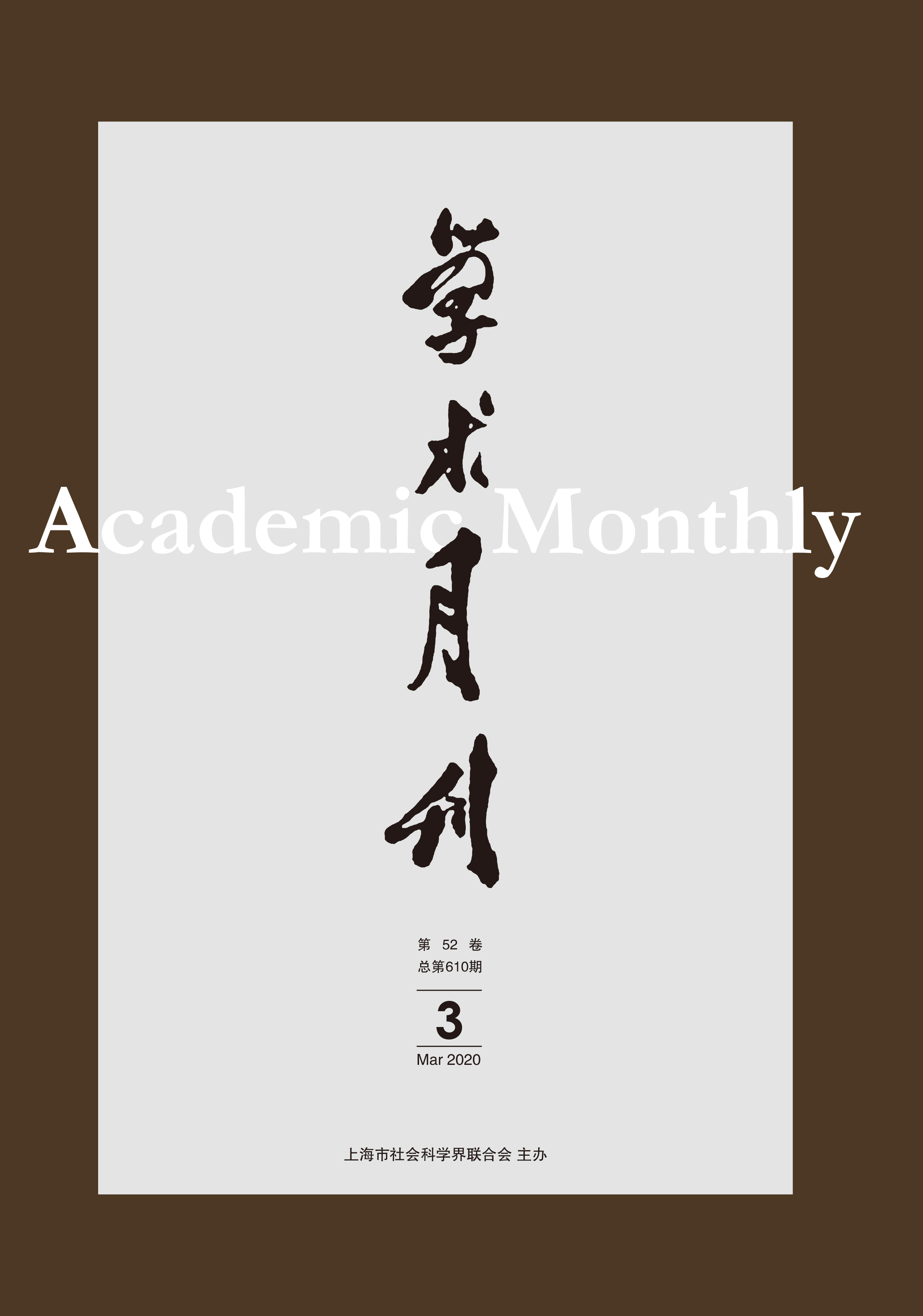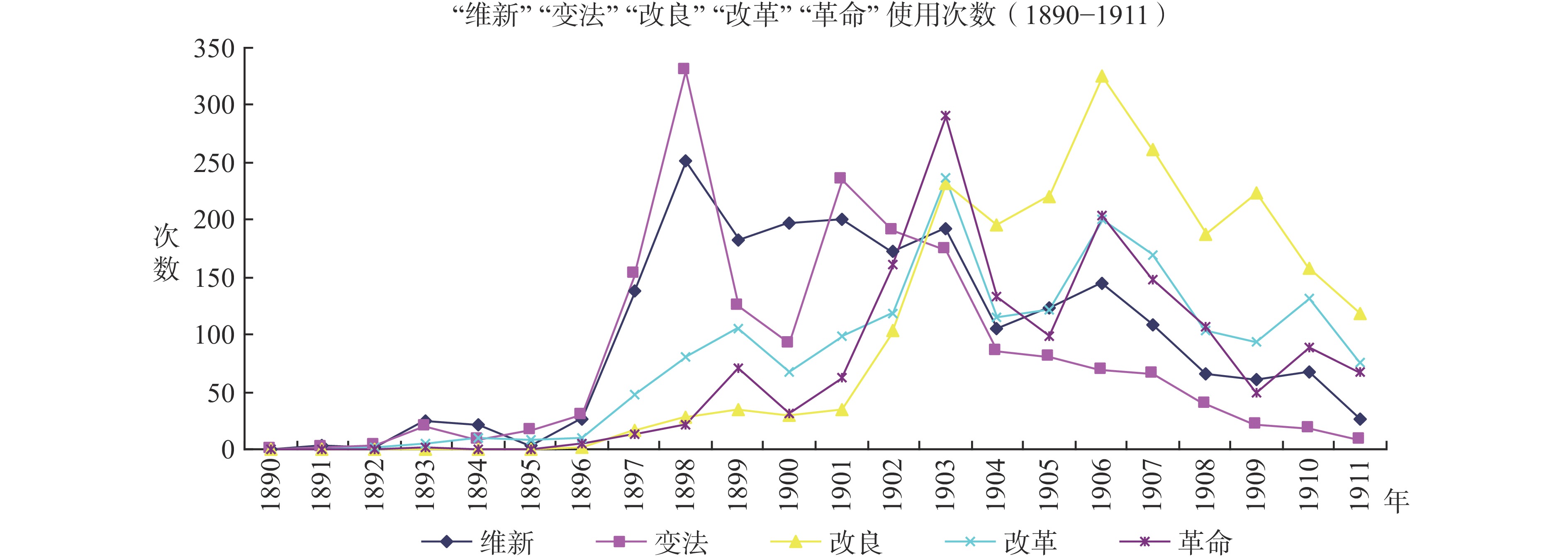Citation:
Xue SONG. The Construction of the Modern Chinese Concept of Weixin (Reform)[J]. Academic Monthly, 2020, 52(3): 121-131.

The Construction of the Modern Chinese Concept of Weixin (Reform)
-
Abstract
The Reform Movement of 1898 not only imitates the political reforms of Japan and Russia, but also introduces a great deal of Western and/or Japanese terms and concepts into China. Inheriting the traditional values of Classic of Poetry, absorbing the ideological resources of Meiji Restoration in Japan, and as the translation of “reform”, the concept of “weixin” (“维新”, reform) has multiple meanings in modern China. As a “new term” and an important “keyword”, this concept was not confined to national or cultural boundaries; to some extent, the complex evolution of this term embodies the cultural dimension of global history. The present article draws upon relevant articles in the news, encyclopedic entries, and important debates at that time. By means of a thorough examination of these historical documents, this article intends to display its historical development in detail, and aims to explore the cross-cultural journey as well as the ideological transition of the concept of “weixin”.
-

-
References
-
Access
-
-
[1]
Jiang SUN
. China’s Turn of Conceptual History Research. Academic Monthly,
2018, 50(10): 150-158.
-
[2]
Qinhan JIA
. The Cultural History of Kiss in Modern China. Academic Monthly,
2019, 51(6): 152-178.
-
[3]
Jun ZHANG
, Tao LI
. The Effect of Normal Education on Economic Development: Evidence from Modern China. Academic Monthly,
2022, 54(5): 46-59.
-
[4]
Jianzhou FU
. The Communication Context of Evolutionism and the Cannibalism Speech of Modern China. Academic Monthly,
2019, 51(3): 131-139.
-
[5]
Yongle ZHANG
. The Burden of “Concert of Great Powers” and the Remaking of Modern China. Academic Monthly,
2023, 55(3): 108-125.
-
[6]
. . Academic Monthly,
2017, 49(09): 171-184.
-
[7]
MA Linghe
. . Academic Monthly,
2018, 50(6): 166-177.
-
[8]
Qingshan YAN
. A Conceptual History and Philosophy of Understanding. Academic Monthly,
2021, 53(6): 45-57.
-
[9]
FAN Guangxin
. Rousseau in China’s Transformative Era—— A Study of Chinese intellectuals’ Reprinting and Interpretation of the first Chinese translation of Du Contrat Social. Academic Monthly,
2023, 55(11): 180-188.
-
[10]
. . Academic Monthly,
2016, 48(04): 143-157.
-
[11]
. . Academic Monthly,
2017, 49(02): 163-178.
-
[12]
Jin JIN
. The Differentiation of Overseas Chinese Community and the Literary Memories of a Pro-Reform Literati. Academic Monthly,
2019, 51(12): 133-141.
-
[13]
Xuan LI
. English Translation of the Concepts Related to the “Chinese Nation” and the Evolution of Its Connotations since Modern Times. Academic Monthly,
2022, 54(2): 205-215.
-
[14]
. . Academic Monthly,
2016, 48(07): 157-173.
-
[15]
WANG Zhongjiang
. . Academic Monthly,
2018, 50(9): 15-34.
-
[16]
ZHANG Zhongmin
. . Academic Monthly,
2024, 56(1): 210-216.
-
[17]
TANG Zhesheng
. . Academic Monthly,
2018, 50(9): 131-139.
-
[18]
YAO Zelin
. Professional Ethics in Sociology: The Origins of the Concept and the Reality in Contemporary China. Academic Monthly,
2024, 56(1): 127-140.
-
[19]
DUAN Bo
. The Modern Transformation of Traditional Chinese Economic Thought: A Perspective of Refining Iconic Concepts. Academic Monthly,
2024, 56(3): 5-19.
-
[20]
. . Academic Monthly,
2016, 48(07): 109-122.
-
-




 沪公网安备 31010102003103号
沪公网安备 31010102003103号 DownLoad:
DownLoad: